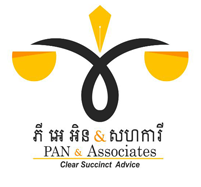Understanding Criminal Procedures in Cambodia
Navigating the criminal justice system can be daunting, whether you are a victim of a crime, accused of one, or involved in any capacity. Understanding the criminal procedures in Cambodia is crucial to ensure that your rights are protected and that you are well-prepared for each step of the process. Here’s a comprehensive guide to help you understand the criminal procedures in Cambodia:
- Filing a Complaint
The criminal process typically begins with the filing of a complaint:
- Who Can File: Victims of crimes, witnesses, or any individual with knowledge of the crime can file a complaint with the police.
- Where to File: Complaints can be filed at the local police station or with the relevant authority, such as the Anti-Corruption Unit for corruption-related offenses.
- Content of the Complaint: The complaint should include detailed information about the incident, including the date, time, location, description of the crime, and any available evidence.
- Police Investigation
Upon receiving a complaint, the police will initiate an investigation:
- Gathering Evidence: The police will collect evidence, interview witnesses, and may detain suspects for questioning.
- Rights of the Accused: During the investigation, the accused has the right to remain silent, the right to legal representation, and the right to be informed of the charges against them.
- Prosecution and Charges
After the police investigation, the case is referred to the prosecutor:
- Review by the Prosecutor: The prosecutor reviews the evidence collected by the police to determine whether there is sufficient evidence to file formal charges.
- Filing Charges: If there is sufficient evidence, the prosecutor will file charges with the court, and the accused will be formally charged with the crime.
- Court Proceedings
The court proceedings in Cambodia involve several stages:
- Pre-Trial Procedures: These include arraignment, where the accused is formally charged and enters a plea (guilty or not guilty), and preliminary hearings to discuss the admissibility of evidence.
- Trial: The trial is conducted before a judge or a panel of judges. Both the prosecution and defense present their cases, including evidence and witness testimonies.
- Verdict and Sentencing: After hearing both sides, the judge will deliver a verdict. If the accused is found guilty, the judge will also impose a sentence, which may include imprisonment, fines, or other penalties.
- Appeals
Both the prosecution and the defense have the right to appeal the court’s decision:
- Grounds for Appeal: Appeals can be based on legal errors, procedural mistakes, or new evidence that could potentially alter the verdict.
- Appellate Court: The appeal is reviewed by a higher court, which can uphold, modify, or overturn the original verdict and sentence.
- Rights and Protections
Throughout the criminal process, certain rights and protections are afforded to both victims and the accused:
- Right to a Fair Trial: The accused has the right to a fair and public trial without undue delay.
- Presumption of Innocence: The accused is presumed innocent until proven guilty.
- Right to Legal Representation: Both victims and the accused have the right to legal representation. If the accused cannot afford a lawyer, one may be provided by the state.
- Protection of Victims: Victims of crime are entitled to protection from intimidation and harm, as well as the right to restitution and compensation.
- Seeking Legal Assistance
Navigating the criminal justice system can be complex and challenging. Whether you are a victim, witness, or accused, seeking professional legal assistance is crucial to ensure that your rights are protected and to navigate the process effectively. Our law firm specializes in criminal law and can provide expert guidance and representation at every stage of the criminal procedure.
For further assistance or to schedule a consultation, please contact us at info@pan-associates.com.
